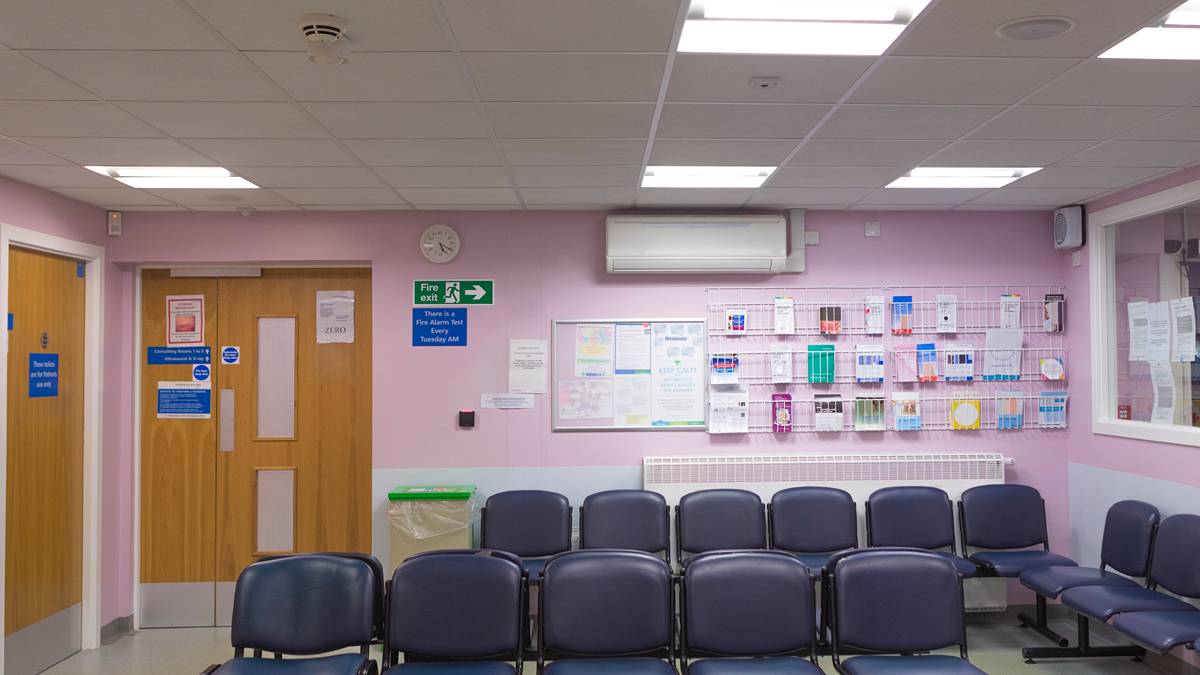Health Check: What’s up, Doc? Not much – post Covid patients are still avoiding GP visits

Long after Covid, patient GP visits are running well below the long-term run rate. Pic by Getty Images
- Australian Clinical Labs says GP and pathology visits are running below the long-term average
- Investors applaud EZZ’s half-year numbers
- Budget medical pot stymies Vitura’s results
As the dwindling number of GP bulk billers becomes a hot pre-election issue, figures from pathology giant Australian Clinical Labs (ASX:ACL) show that ailing folk are preferring to soldier on alone.
In figures contained in ACL’s half-year results prezzo today, the company says GP visits grew at a compound annual 2.4% between 2009 and 2019, to just over 122 million annual visits.
Understandably, doc visits shrunk during Covid, by 8% to a low of 95.2 million.
They’ve recovered to 106.9 million, but that’s still a 24% shortfall on the historical run rate.
GPs are the usually the first port of call for a pathology referral.
The number of “pathology episodes” grew at a compound annual 3.3% in the decade to 2019, to 43.2 million.
Excluding the bonanza of processing all those Covid swab tests, the number fell to 39.6 million at the height of the pandemic.
Now they’re at 46.3 million, 12% shy of the historic trend.
For ACL, that means a $60 million revenue shortfall.
Put in context, ACL’s December half revenue grew 9.5% to $319 million, with underlying earnings of $27.3 million (up 16%).
Management affirms previous guidance of full-year revenue of $725-752 million, with underlying earnings between $65-73 million.
But the earnings were below expectations and the stock was down as much as 19% this morning.
A forgotten element of the bulk billing debate is that pathology reimbursement has been frozen for 25 years.
In last year’s budget the federal government indexed one-third of pathology items, effective from this July.
But $356 million worth of commonly-accessed tests were cut altogether.
Industry group Pathology Australia has launched a ‘keep pathology bulk billed’ campaign, having sadly overlooked the Make Pathology Great Again marketing handle.
But evidently the lab jockeys don’t have same political clout as doctors or (chemists).
Still, if Labor and the copycat Coalition keep their promise to boost GP bulk billing incentives, one would expect the benefit to flow through to the pathology chains.
EZZ’s numbers are a thing of beauty
Having launched eight new products in the December half, health supplements and beauty company EZZ Life Science (ASX:EZZ) plans to release five more in the current stanza as it prepares for market entry into the US.
EZZ’s revenue rose 40% to $30.3 million – as per the January 23 December quarter disclosure – with net profit climbing 180% to $3.2 million.
The company will pay 2 cents a share interim div, having dispensed 1 cent last time around.
EZZ’s biggest own-brand sellers are a foetal brain development aid, a lycine (amino acid) growth dietary supplement and a bone growth chew for adolescents.
The company also distributes Eaoron-branded skincare products.
EZZ has a foothold in more than 600 chemists locally and 200 specialty and grocery retailers globally.
But 85% of revenue is derived from more than 750 e-commerce channels, with greater China accounting for 86% of turnover.
While the company is happy with Chinese sales, it’s planning a cautious foray into the US$100-billion-a-year US market and promises to update investors in April.
Management hasn’t provided any full-year guidance.
In January, chairman Glenn Cross told Stockhead said the benefits of EZZ’s Australian Open sponsorship – and Chinese New Year sales – should flow through in the June 2025 quarter.
(The company acquired exclusive three-year marketing rights for the event for health care supplements, covering China and Southeast Asia).
Ahead of a 2pm investor hook-up today, EZZ shares surged by as much as 20%.
The low-liquidity shares have fallen 60% from their record of close to $5 in early October last year.
At the start of 2024 they traded at 63 cents, so they’ve had a healthy run.
Vitura’s numbers fail to hit a high note
Medical pot intermediary Vitura Health (ASX:VIT) is suffering the impact of a local oversupply resulting in a sharp decrease in selling prices.
Vitura today reported a 4.5% increase in half-year revenue to $62.6 million, but a 48% net profit decline to $1.58 million.
While some non-cash items contributed to the downturn, it was mainly due to “gross margin pressures experienced industry wide”.
Vitura operates the Canview marketplace, which sources product from multiple suppliers.
The company also owns the acquired Doctors on Demand telehealth business.
Canview’s number of units sold increased by 1%, but the average selling price decreased to $106 per unit, from $116 previously.
The company notes the proliferation of ‘budget’ brands that are “successfully addressing the demands of price-conscious patients in the current economic climate”.
(Management doesn’t mention the impact of illegally purloined weed, but it surely doesn’t help.)
Vitura reckons it can offset the trend with greater patient numbers from its expanded footprint of clinics.
And if you can’t lick ’em, join ’em: the company also plans to introduce “various products in the budget range”.
On a brighter note, Vitura’s clinical consulting and other revenue soared 230% to $8.8 million, partly reflecting a full six months’ contribution from Doctors on Demand.
Vitura has been one of the most successful ASX pot plays, partly because it doesn’t grow the stuff itself.
But the company’s shares have almost halved in the last year and this morning were around 12% off the pace.
Percheron board spat becomes three-way tussle
Wow, this one’s getting gnarly!
Already facing a motion to remove the CEO and chairman at a scheduled March 4 EGM, Percheron Therapeutics (ASX:PER) has received a notice from another party called Powerhouse Ventures Ltd.
There’s a twist, in that Powerhouse wants a meeting to remove the proposed two new directors, should that motion get up.
The first spill motion has been moved by shareholders including Gregory Peters, who was the company’s chair when it was known as Antisense.
This grouping has nominated Peters and XEC Partners’ Gennadi Koutchin as directors.
The Brisbane-based Powerhouse wants to remove CEO Dr James Garner and chairman Dr Charmaine Gittleson, as well as director Dr Ben Price.
The group’s proposed directors are Doran Eldar, Richard Hamersley and Dr Julian Chick, who heads the recently listed nerve-regeneration mob Renerve.
The spat stems from the failure of Percheron’s lead clinical program, for Duchenne muscular dystrophy.
On Monday, the company said it had submitted a non-binding proposal to a global pharma company to license “an exciting new drug development program focusing on a rare neurological disease”.
No doubt the dissidents have different ideas on using Percheron’s residual cash stash.
For its part, XEC alleges the company did not do enough to evaluate the trial data and prematurely terminated the program.
In a missive to shareholders, XEC said “many biotech companies experience trial setbacks, but successful ones critically evaluate the data, engage independent experts, and determine the best way forward.”
At Stockhead, we tell it is it is. While EZZ is a Stockhead client the company did not sponsor this article.

UNLOCK INSIGHTS
Discover the untold stories of emerging ASX stocks.
Daily news and expert analysis, it's free to subscribe.
By proceeding, you confirm you understand that we handle personal information in accordance with our Privacy Policy.








